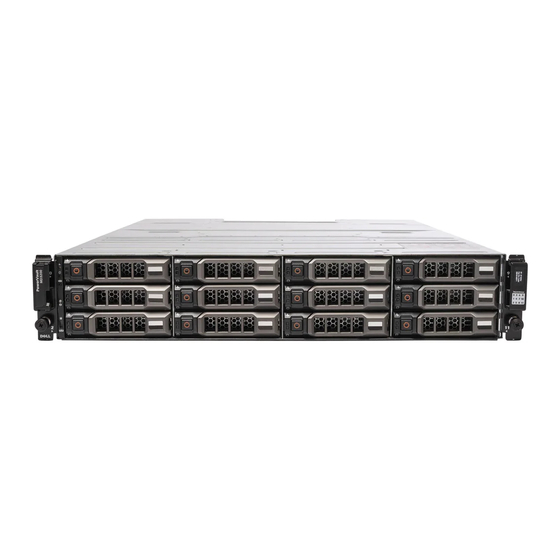Planning for Hyper-V: PowerVault™ MD3200 and MD3200i Series of Arrays
To choose the service level to use, examine the needs of the applications connected to the storage
array. For instance, if you have your servers set up to iSCSI boot, or are using virtualization to "hide"
the storage array (and the guest OS is booting off a C: drive that is actually on the storage array),
select EF because the data must get to the server and, if there is latency, the server locks up. On the
other hand, if you might want all of your traffic coming in from the worldwide web, set to the lowest
possible class of AF so that the service level does not affect your critical data.
Considerations for Storage and Network Adapters
(PowerVault™ MD3200 and MD3200i Storage Arrays)
When planning for the network configuration, make sure that you have at least two network adapters
assigned for your virtual machine (VM) traffic. If you are planning to add MS-Exchange, MS-SQL, MS-
SharePoint, or a similar configuration to your VMs, use two dedicated network connections for each of
those applications. For example, if you have a file server, MS-Exchange, and a SQL server running on
VMs, you should have six network connections (two for MS-Exchange, two for the SQL server, one for
the file server, and one for managing the Hyper-V server). For clustering, have two additional network
connections for the cluster heartbeat.
Connecting the Dell PowerVault MD3200 Storage Array
The connection to the Dell PowerVault MD3200 storage array is SAS based. Error! Reference source
not found. shows how the SAS storage cabling is configured.
Dell PowerVault MD3200 Storage System (SAS) Cabling Configuration
Figure 3.
Connecting the Dell PowerVault MD3200i Storage Array
For the iSCSI-based Dell PowerVault MD3200i storage array, you must have two NICs for I/O to the
storage array for each server. Set up the management ports (out-of-band) for managing the MD3200i
storage array because they are required for the initial configuration. For best performance when
Page 10

